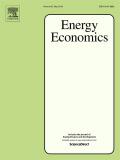Green growth is a relatively new concept aimed at focusing attention on achieving sustainable development through the efficient use of environmental assets without slowing economic growth. This paper presents a real-world application of the concept, and identifies viable policy options for achieving a complementary environmental regulatory framework that minimizes output and employment losses. The analysis utilizes macro level data from the Turkish economy, and develops an applied general equilibrium model to assess the impact of a selected number of green policy instruments and public policy intervention mechanisms, including market-based incentives designed to accelerate technology adoption and achieve higher employment and sustainable growth patterns.
This article describes a multidisciplinary study of market-based policies for controlling air pollution in China. While previous studies have examined the costs and benefits of pollution control separately, this approach determines them together using an economy–environment model for China. We employ air dispersion simulations and population maps to calculate health damages due to air pollution. This provides estimates of incremental damages for industry output and fuel use. Based on these marginal damages, we simulate the effect of “green taxes” on the economy and show that the environmental benefits exceed the aggregate costs, ignoring adjustment costs for individual sectors.

Large public investments in clean energy technology arguably constitute an industrial policy. One rationale points to market failures that have not been corrected by other policies, most notably greenhouse gas emissions and dependence on oil. Another inspiration for clean energy policy reflects economic arguments of the 1980s. It suggests strategic government investments would increase U.S. firms' market share of a growing industry and thus help American firms and workers. This paper examines the reasoning for clean energy policy and concludes that:


This publication is a takes stock of existing initiatives and applications relevant for valuing natural capital. A baseline of existing initiatives is provided in order to inform the Natural Capital Protocol project. It is also intended to be a useful resource to demystify the growing volume of natural capital relevant initiatives emerging from the private and public sectors. The following existing initiatives have been reviewed and are summarised:
- Business engagement initiatives.
- Methodologies, tools and initiatives relevant to measuring, managing and valuing natural capital in business and investor decision making.
- Initiatives relevant to using natural capital valuation in business applications eg, strategy, management (at organisation or supply chain levels), reporting and disclosure.
- Policy initiatives that define natural capital accounting classifications, metrics and indicators that can inform future target setting and new market initiatives relevant to business.
